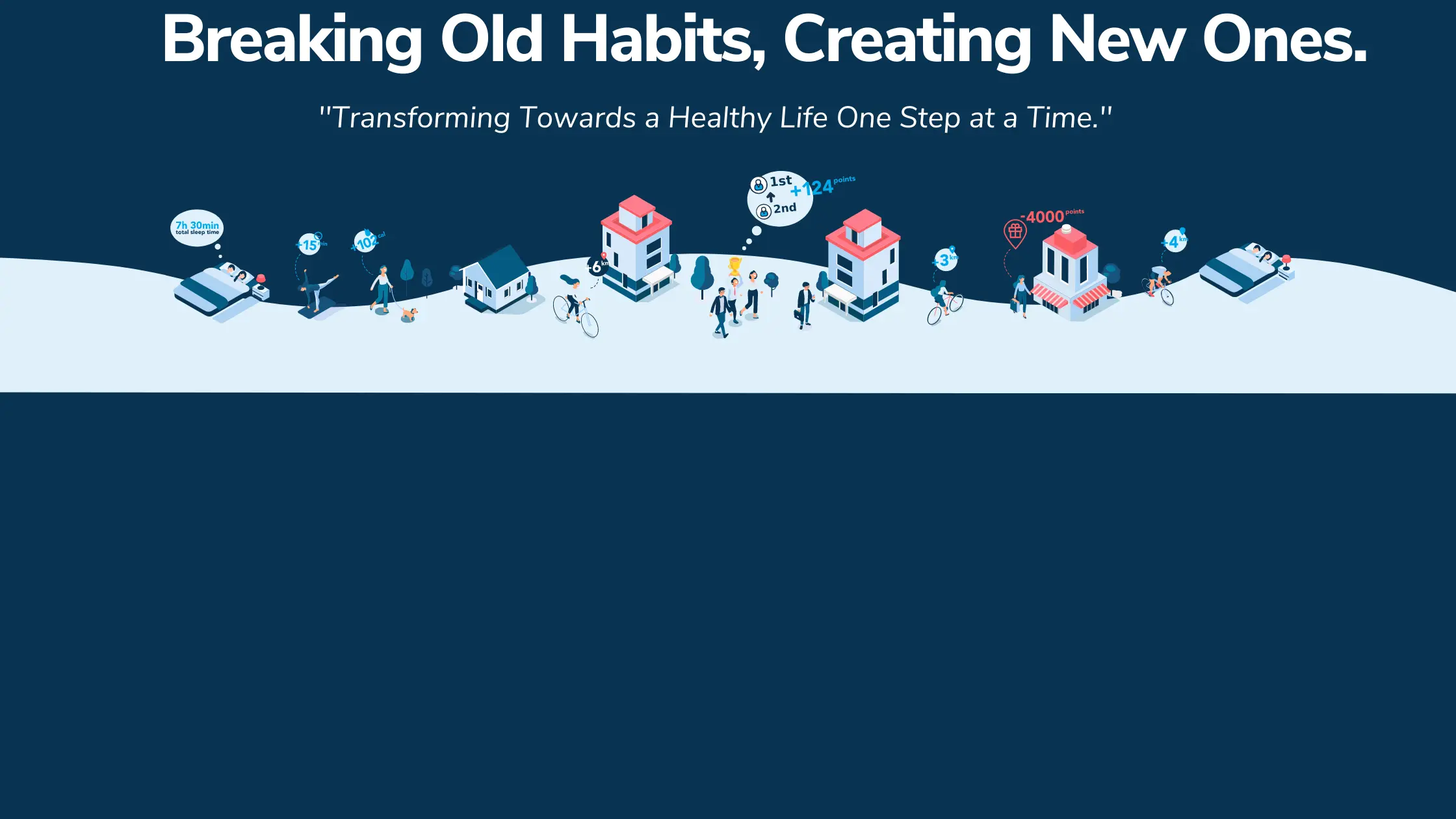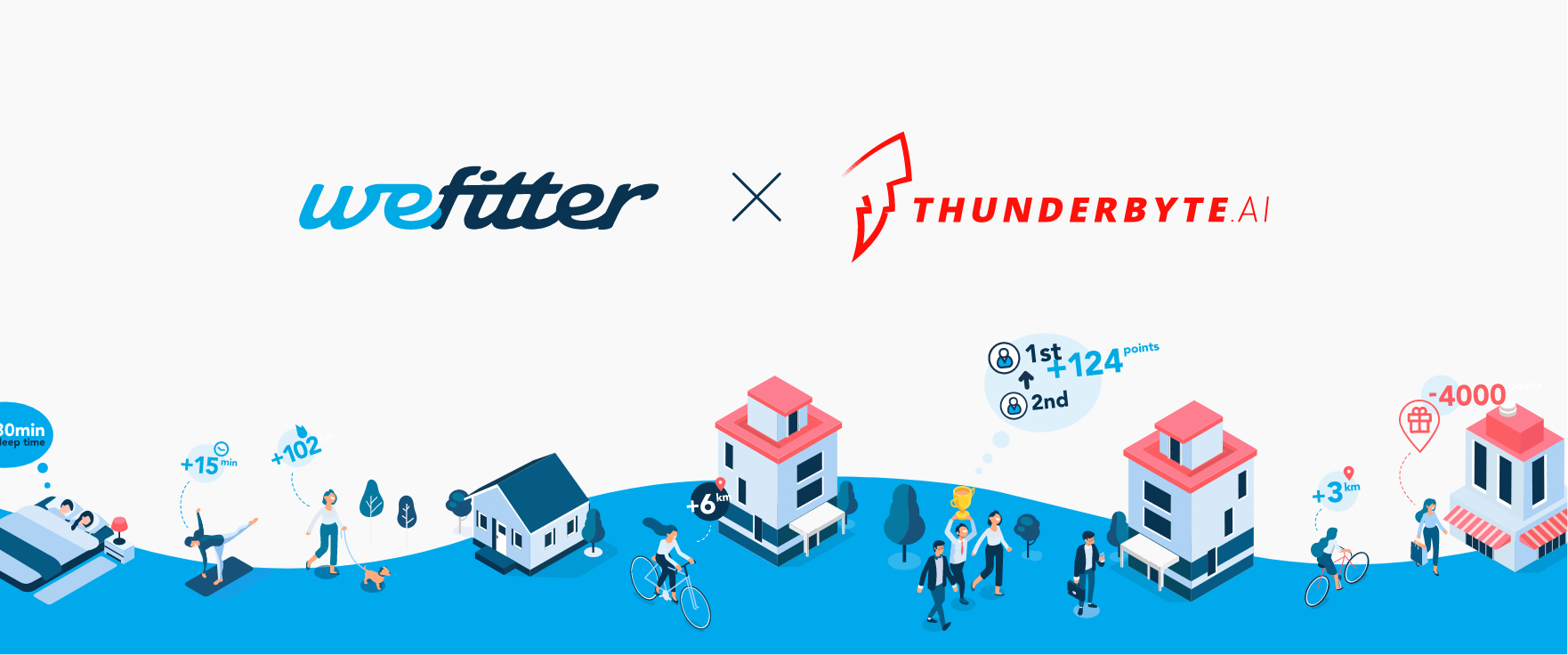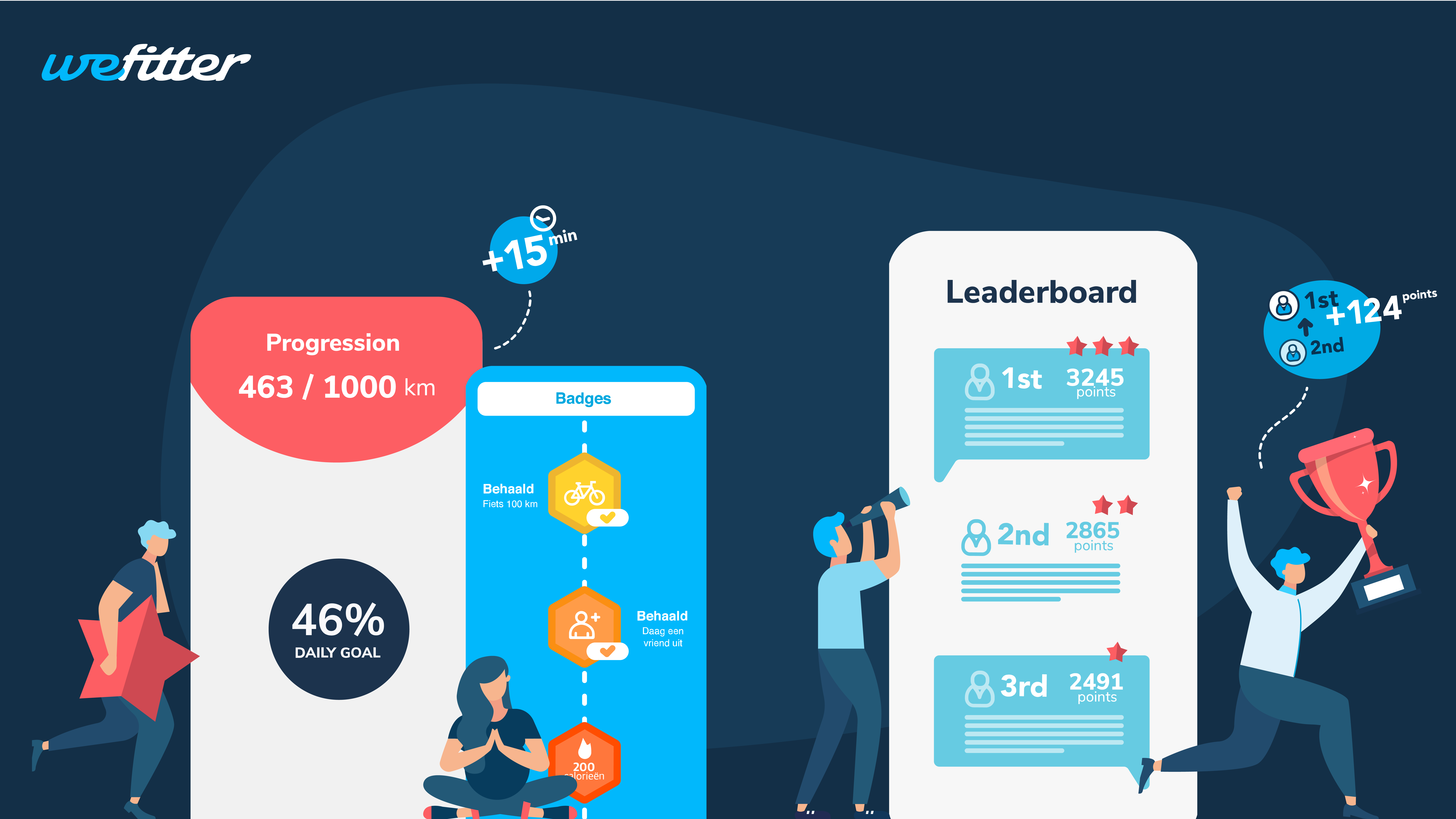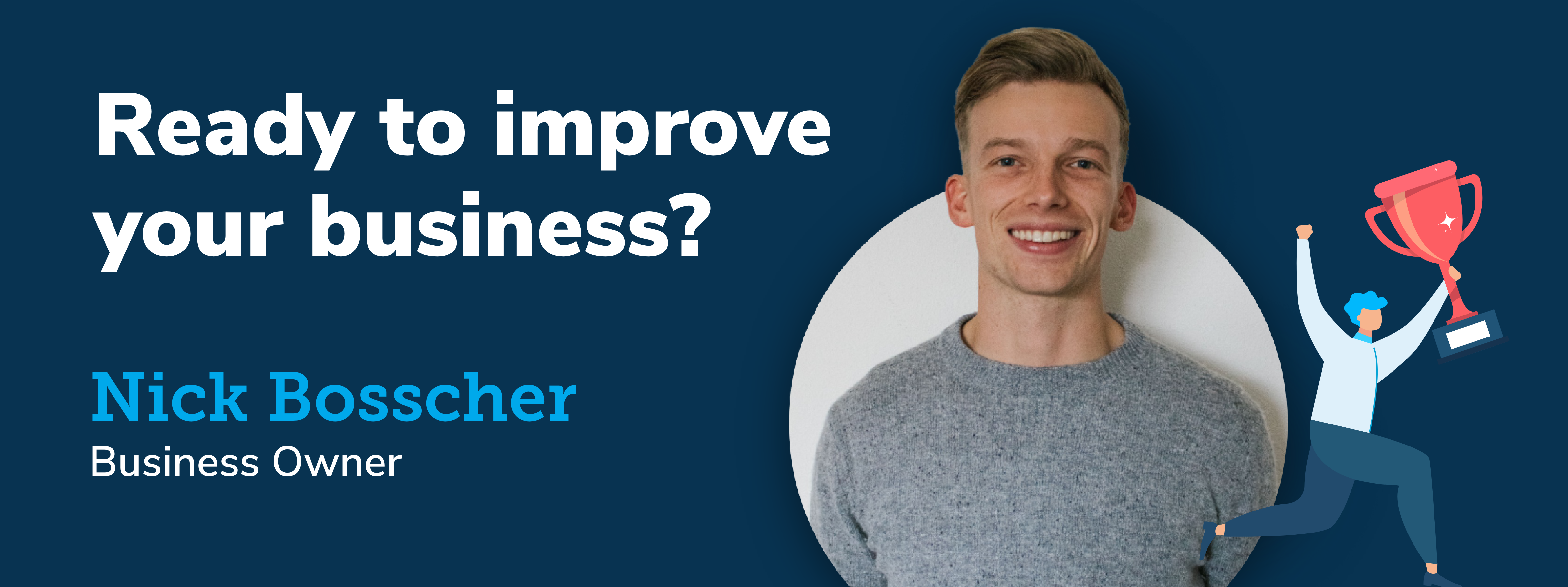
Breaking Old Habits, Creating New Ones.
Breaking Old Habits, Creating New Ones: Transforming Towards a Healthy Life One Step at a Time.
Habits, how often do you unlearn the bad ones and learn the good ones?
Everyone has them, consciously or unconsciously: habits. They play an important role in our daily lives. Close to 50% of everything we do in a day can be considered a habit. Habits can be beneficial, but they may also get in the way. In this blog, you will learn more about how to better understand the habits that play a major role in your daily life, and how to learn or unlearn them.
What are habits and why do people find it difficult to stick to it?
People form habits by repeating certain actions in the same way over and over again. They want to learn 'good' habits and unlearn 'bad' ones. However, this often does not lead to the success they were hoping for.
Actions required to acquire habits tend to fail after only a few days, weeks or months. This is because the goal set for learning a new habit is often not specific enough. The goal is considered important, but won't be achieved.
At the beginning of the year, people often have their new years resolutions. Good resolutions regularly consist of learning/following habits, but there is a difference between the two. A good resolution might be to go on holiday, but this is not a habit. A habit is an action one does automatically without thinking about it.
How to formulate a habit you want to learn?
Making habits specific is important to make them achievable. in reality, people often say ''I want to exercise more'' or ''I'm going to eat healthier''. This is not specific enough. The formulation of the habit is too vague to implement properly.
It is better to say ''I am going to the gym three times a week to lose weight'' along with the location of the particular gym attached. However, this can be made even more concrete by linking it to a specific time or environmental factor.
We wrote a template for you to formulate the habit that you want to learn: I go [ACTIVITY] on [DAY(S)] at [TIME(S)] at [LOCATION] for [TIME(S)] at [PURPOSE].
Filled in template: I go to the gym on Monday, Wednesday, Friday and Sunday at noon at the Basic Fit for 1.5 hours to feel more energetic.
How do you learn good habits?
As mentioned before, it is very important to be as specific as possible when formulating a habit. This will increase your chances of actually learning the habit, because it gives you more direction and guidance than if you formulate it vaguely. Another way of learning a good habit can be; replacing an old, bad habit with a new good habit.
Replacing habits
One way to learn a 'good habit' is to replace part of a habit. For instance, in many cases, a bad habit can be changed into something positive quite easily.
A bad habit might be eating a bag of sweets after work. This habit can be unlearned by replacing the 'unhealthy' with something 'healthy'. For example, you could choose to replace the bag of sweets with a banana and an apple. Then when you get home after work and have the habit of eating something, grab a piece of fruit instead of the bag of sweets.
So, most of the habit remains the same, only you replace something 'bad' with something 'good'. The idea of the bag of sweets being replaced with fruit is just one of many examples that can be applied in practice.
Stacking habits
Habits can be stacked. An example is that for some people it is a habit to drink a protein shake after exercise to supplement muscle tissue with protein. If you struggle to get the right amount of vitamins, you can make it a habit to also eat fruit after drinking a protein shake. The new habit then becomes: 'After exercising, I drink a protein shake and eat 200 grams of fruit'.
Reward yourself
It is important to reward yourself in the short term. If you want to lose weight and start running for half an hour every day to do so, it often takes a long time before you see any results. This can be demotivating.
You can reward yourself by listening to your favourite music while running or watching an episode of your favourite series after exercising, and there are many more options that can help you to reward good habits.
How to unlearn bad habits?
As with learning good habits, when unlearning bad habits it is useful to set concrete goals. If your goal is to 'go to the gym more often' in your spare time, you can make it more concrete by identifying which days you will go, what time, and how long you will go to the gym.
Next, it is important that you also reward this good behaviour, as it is then more likely to succeed. For example, once a week, after exercising, treat yourself to an evening on the couch.
Other people can also help you learn new habits. For example, if you have a 'gym buddy' who has been active at the gym at least three times a week for an extended period of time, this person can help you stay motivated, keep structure and learn the new habit.
Roadmap to successfully acquiring habits
Learning new habits can sometimes be challenging, but with the right approach, it is certainly achievable. Here is a roadmap that can help with learning new habits:
- Set a specific goal
- Make a plan
- Start small
- Make it automatic
- Track your progress
- Be patient
- Reward Yourself
- Make adjustments
1. Set a specific goal: Start by setting a specific goal for the habit you want to learn. Be as specific as possible and keep it small and achievable.
2. Make a plan: Think about how you are going to achieve this goal. Make a plan on how you want to learn the habit, for example by choosing a specific time and place to practice the habit.
3. Start small: Start with a small step towards the goal. This can help to keep the threshold low and make learning the habit more enjoyable.
4. Make it automatic: Try to automate the habit as much as possible. Use triggers or routines to learn the habit.
5. Track your progress: Keep track of how often you do the habit and how easy or difficult you find it. This can be helpful to measure your progress and solve any problems.
6. Be patient: Learning new habits can take time. Be patient with yourself and persevere, even if it is difficult sometimes.
7. Reward yourself: Give yourself a reward if you maintain the habit for a certain amount of time. This can help you stay motivated and keep the habit.
8. Make adjustments: If you experience problems in learning the habit, adjust your plan. Try using different triggers or routines or change the time or place you do the habit.
By following these steps, you can more easily implement effective habit change and achieve your goals.
How the WeFitter API can help end-users of digital health platforms implement effective habit change and achieve your goals?
As mentioned before, setting goals is really important. And reflecting on these goals is also very important! The WeFitter API combines wearable data with gamification and AI.
The WeFitter API offers more than 250 wearable and app connections, from Apple Health to Fitbit and from Garmin to Samsung Health. The data is then leveraged smartly by combining it with gamification and AI. This allows end users to participate in challenges, gain insight into their health and lifestyle data, be rewarded for their activity and much more.
Challenges can be created and managed in the unique WeFitter dashboard. These challenges can be customised according to the needs of the platform and users. Individual challenges, team challenges and global challenges, it is all possible. The gamification aspect consists of more than challenges with a leaderboard as well. For example, badges, points, biological age and more.
Want to know more about how the WeFitter API can help your platform and end users move forward? Then schedule a free call with one of our experts.






